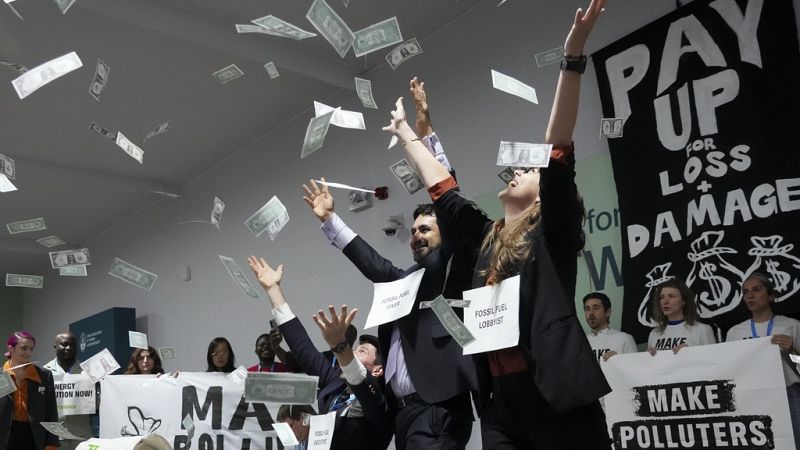COP29: First draft text draws widespread criticism but presidency confident of imminent breakthrough

The latest draft of the negotiating text, published on Thursday by the COP Presidency, has raised some eyebrows here in Baku.
The new document highlights several key questions that remain unresolved, such as what qualifies for inclusion in the annual figure, who the contributors are and how much they are expected to provide.
The EU Commissioner for Climate, Wopke Hoekstra, described the lack of clear figures for the climate finance goal as "unacceptable."
Although not directly involved in the negotiations, we asked Lídia Pereira, Chair of the European Parliament's delegation, about her take:
"We cannot put at risk mitigation. We have to work with the three elements of climate change: mitigation, adaptation and loss and damage. And so for us, it is unacceptable that there are certain countries that are pushing for a backtracking of the agreement that was achieved last year at Dubai. The UAE consensus on the transitioning away from the use of fossil fuels."
'Stepping up', not 'backtracking'
Expecting the numbers for the new climate financing agreement to be proposed soon enough, Pereira insisted that ambition is needed when it comes to the policies and goals of mitigation:
"I think the positive side of this negotiations is that the EU is willing to step up its game when it comes to climate financing. But on the other side, we have to see some movement of not backtracking instead of stepping up the game in terms of mitigation."
In a statement, Azerbaijan’s COP 29 Presidency clarified that the document is not final and that figures will be added in the next release. Sources close to the negotiations told Euronews that "although this text is not an ideal one and requires further consultations, the world is nearing to see the historic Baku breakthrough."
Recognition and definition of contributions are key battlegrounds
The draft "recognizes the principle of common but differentiated responsibilities and respective capabilities in the light of different national circumstances and emphasizes the need for respecting countries’ sovereignty", the sources said.
The last part hints at the obstacles yet to navigate around, as Eleonora Cogo of the Italian climate change think tank ECCO told Euronews:
"The main things where there are big diversions is the size - the numbers, the order of magnitude - and the other one is, who contributes towards this goal."
The 1992 UN Framework Convention named the developed countries responsible for climate financing, but a 32 year old document hardly represents the current reality and these countries "are now saying, well, there are other countries who could chip in", Cogo said, adding that these countries, the likes of South Korea and China, "are already contributing and playing a big role for example through the multilateral development banks".
So, the crunch questions are, how this should be recognised and whether they should be allowed to keep the voluntary nature of their contributions or be taken into the responsibility of the Convention.
Today

